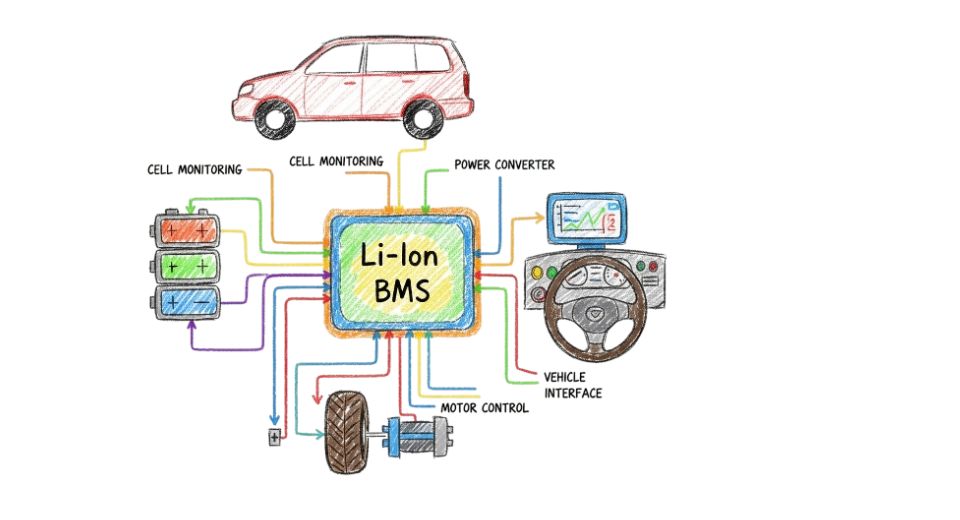
Sep 09, 2025

The newly released study of the global lithium-ion battery management system for automobiles market by Metastat Insight provides an in-depth account of how technological innovation and industry interests converge in this aspect of auto technological development. This publication not only gives one a perspective on product alignment as well as market dynamics but also an analysis of the broader ecosystem that supports innovations in automobile energy systems. Through the examination of operational effectiveness, manufacturing flexibility, and geographical diversification, the research constructs a picture of an industry that has transitioned from individual experimentation into an organized sector of global significance. What sets this market apart from other related segments is the increased emphasis being placed on precision management of power sources.
Energy storage is not seen as a passive component anymore but as an active architecture where software and hardware need to play together in perfect harmony. This change has led to battery management systems that do not just ensure operational safety but also extend usage potential. In the automotive ecosystem, this induces unique value to manufacturers that want both consistency and responsiveness. Over the last few years, partnerships between car manufacturers, component creators, and software developers have established new paradigms for manufacturing and distribution. Such relationships illustrate how industrial silos are breaking down in favor of collaborative models, where intellectual property and engineering knowledge are pooled to drive development further. The international lithium-ion battery management system for vehicles market illustrates this process in very clear terms, with emerging entrants and larger companies alike finding a position within its framework. Attention is also given to the supply chain underpinning this sector. Much of the discussion is devoted to raw materials sourcing strategies, although equal emphasis is now given to digital monitoring ensuring consistency on the assembly process.
This two-track focus signifies a remapping of quality control, shifting away from discrete inspection points to ongoing monitoring for the entirety of production lines. With such supervision, efficacy is retained and danger decreased, leading to systems that continue to command trust between manufacturers and consumers. Another element that supports the role of this market includes regulatory harmonization across geographies. Though regulations vary from geography to geography, the overall trend points toward a uniform drive toward greater levels of safety and performance. This establishes a context in which compliance is not merely an imperative but also a competitive advantage, enabling companies to differentiate themselves with anticipatory adoption of advanced systems.
For players in the global lithium-ion battery management system for vehicles market, such trends add both opportunity and obligation, combining commercial growth with regulatory compliance. Another aspect worth exploration involves incorporation with digital technologies that move beyond conventional automotive design. The advent of networked systems, predictive maintenance schemes, and adjustable algorithms makes battery management no longer restricted to malfunction prevention. Rather, it becomes an integral part of an extended architecture of smart vehicles that respond to diverse situations in real time. This dialogue between mechanical engineering and digital foresight illustrates how the marketplace has evolved as a forum for interdisciplinary discovery.
Regional focuses bring to the fore various aspects of adoption. While some regions point to innovation through research centers, others focus on deployment in mass-scale fleets. Such spatial diversity brings strength to the general structure of the market, such that advancement is not contingent on a particular segment or region. Rather, knowledge crosses boundaries, resulting in cumulative effects for the industry as a whole. Sustainability talks also cross paths with this market. While attention is usually reserved for vehicle performance, equal priority is given to lifecycle management and the wider environmental impact of energy systems. End-of-life thinking, recycling strategies, and resource optimization are increasingly incorporated into commercial plans, a more integrated perspective of what battery management is about. The global lithium-ion battery management system for vehicles industry thus stands for not only technological progress but also for a platform for fresh styles of corporate responsibility.
Market players regularly go back to design approaches to evolve for newer challenges. They involve meeting compact design with prolonged longevity, attaining compatibility with various car models, and achieving scalability for future use. The capability to modify design paradigms while keeping performance uniform is reflective of the higher level of engineering advancement in this market.
The story developed by Metastat Insight shows that the international lithium-ion battery management system for automotive vehicles market is now no longer on the outskirts of automobile innovation but is an integral component of contemporary auto design. Its development reflects collaboration between industries, adoption of electronic solutions, harmonization with international standards, and a persistent focus on ecological responsibility. This development shows how a specific technological component has grown into an international segment with impact throughout engineering, regulation, and commerce. As the report opines, the research tabled by Metastat Insight on the market for global lithium-ion battery management system for cars reflects a world that is characterized by integration, innovation, and accountability. In its report, a vision is painted of an industry that not only keeps up with existing industry demands but also establishes the future vision of transport systems across the globe.
Drop us an email at:
Call us on:
+1 214 613 5758
+91 73850 57479